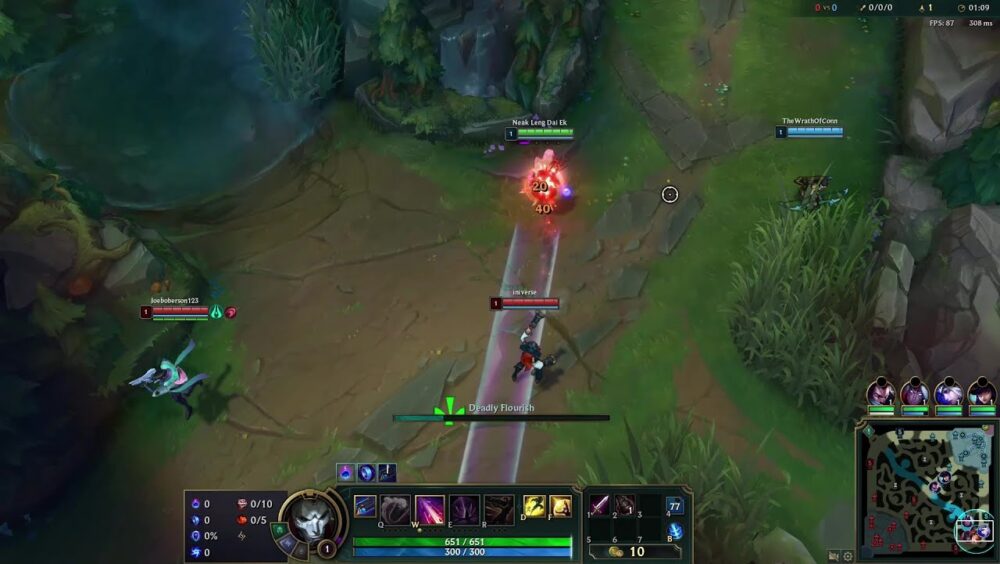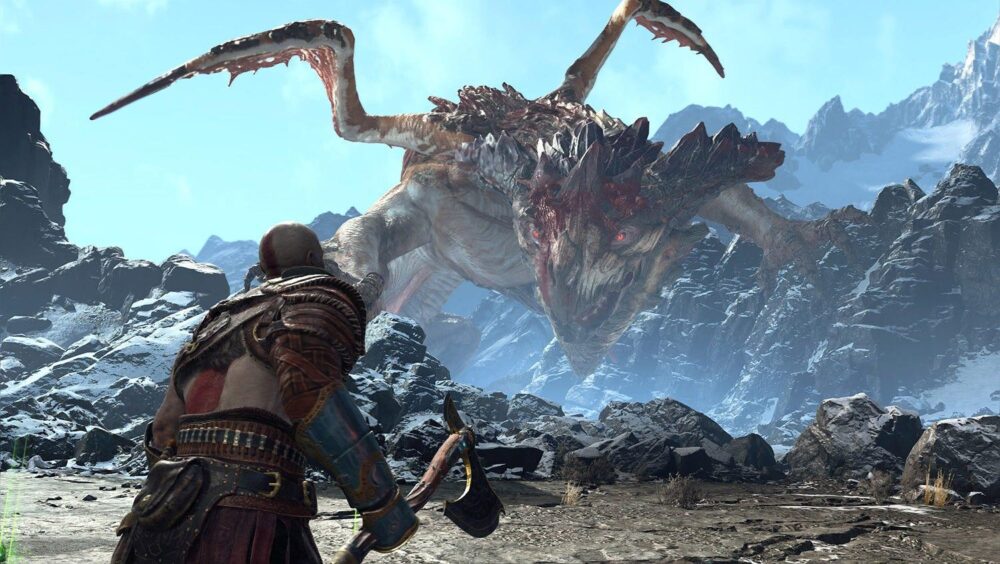As video games are becoming more accessible than ever before, the numbers of those addicted to gaming have been on the rise. Many people wonder, what causes video game addiction? But the answer isn’t so cut and dry. Recent statistics have shown that some video games are more addictive than others and the nature of their gameplay might be to blame. The video game’s addictive properties were scored by the number of people who play them for more than 20 hours per week. Racking up game time equivalent to that of a part-time job!
MMORPG

For those unfamiliar with an MMORPG, it stands for Massive Multiplayer Online Role-Playing Game. The premise of these games is simple. Typically you design your own character and venture into a vast virtual world where you can meet and interact with other players. Together you team up to complete raids, acquire new gear, make money and progress to a usually very satisfying “end game fantasy”. The problem with this model is that it has proven to be the most addictive type of video game on our list, with 21% of players in the US investing over 20 hours a week.
The major titles that dominate this genre are World of Warcraft, Runescape, Elder Scrolls and many more. But what is important here is why they are so addictive. MMORPG’s are highly social games. Progression within the game can often be accelerated by working together with other players to complete quests, defeat bosses and earn money. This level of social interaction often leads to large communities forming through discord as well as many friendships. Humans being social animals we need interaction with others. However, those who are shy or suffer from social anxiety can find it difficult to make connections in the outside world.
As cliche as it sounds, with online interaction through RPG’s, players can reinvent themselves and be whoever they want with complete anonymity and safety. A common symptom of video game addiction is neglecting personal relationships. A large part of this in many cases is due to gamers ignoring their real-life friends and family in order to spend as much time playing with their online friends
One of the main addictive features of RPG’s is their ability to create achievable goals and a sense of achievement in completing tasks within the game. Spending long hours levelling up skills and grinding tedious tasks are often met with rewards that improve the quality of life in-game or boost the value of the player’s account.
Sadly through repetitive conditioning and investing time into these games, it skews our motivation to achieve real life long term goals. Those addicted to MMORPG’s in particular struggle with motivation problems, they find most other activities boring and begin to fall behind in school or at work. This is what earns MMORPG’s top spot at being some of the most addictive video games out there.
MOBA

Massive Online Battle Arenas also known as MOBA’s are some of the most played games in the world. League of Legends a popular free MOBA has over 115 million active monthly players. It’s easy to see that with the vast number of people playing there is a great risk of video game addiction.
What pulls so many League of Legends players in initially is the fact that the full game is entirely free to play. What keeps them there is the games ability to walk the fine line between challenging and rewarding. Learning to play the game is difficult at first but the satisfaction of mastering your champion usually results in players wanting more. Riot games release new characters at a rate that makes it almost impossible for new players to catch up to. By the time you’re satisfied with one champion, there will be almost 100 more to be played.
League of Legends is also a highly competitive game. The vast majority of players spend most of their time grinding out ranked games in order to climb the ladder to reach the top ranks. Games usually last up to 30 minutes on average meaning with such a great investment of time players have a burning desire to win. This is what also leads to long hours of playing as those who love the competitive environment are drawn to this game. These sorts of games play on our desire to see measurable growth. Hence why addicted gamers are constantly playing in order to try and better themselves in-game as opposed to in the outside world.
Shooters

On our list shooters encompass battle royals, competitive first-person and third-person shooters. In recent years battle royals have taken over this genre. It would be uncommon nowadays for a shooting game not to include some form of battle royal game mode.
Different games within the genre have their quirks of how they appeal to the masses, Fortnite’s dances and pop culture references sweeping across the playground. Or Warzones fast-paced action-packed gameplay roping in the high-level players and streamers. They all have one thing in common that makes them so addictive and that is the adrenaline rush they stimulate when playing.
As those who have played these games might understand, the format of parachuting on an island and battling to be the last one left can be an exhilarating experience. When the play area closes in and you’re left in a 1v1 situation taking fire from an enemy every time you peak, this immersive action movie-esque experience is a gamer’s dream! The ability to experience such high adrenaline situations from the safety of their PC is what makes video game addicts out of so many thrill-seekers.
Action Adventure

Action-adventure games are typically solo campaign games where the player must live through the eyes of the protagonist in the game. The experience can be likened to living out a movie, especially as the development of most of the latest triple-A titles takes more time and money than some Hollywood blockbusters. Some of the highest-rated and most played games within the genre consist of God of War, Uncharted 4 and The Last of Us which are some of the best story-driven games of our generation.
These highly immersive experiences however are closely linked to escapism a major cause of video game addiction. Many people play these games in order to get away from the stresses of life or even the negative emotions and experiences they might be having. Although everything is good in moderation when video games are used to escape excessively it leads to an inability to deal with greater problems they are facing.
By constantly running from their stresses and anxieties they cannot healthily engage with them, making it more overwhelming. Ultimately this exacerbates their desire to play video games to escape and the cycle of addiction continues. It is clear that video game developers do not design these games with malicious intent and they should not be vilified. A major part of treating video game addiction, which we will discuss later focuses on finding methods to deal with any underlying problems that have arisen through neglecting themselves and excessively playing video games.
Puzzle Games

As some of us might have seen before puzzle games usually come in the form of incredibly addictive mobile apps, some of which brag about this as their tagline. Contrary to other video games most mobile puzzle games have a rather dishonest intention as their goals are to create a deliberately addictive game and then hit the user with a paywall or other microtransactions that give extra lives, bonus levels or reduce waiting times.
These games aren’t particularly challenging but make great emphasis on a satisfying and gratifying victory. Matching up a row of coloured candy to see them pop with a large number of points is sometimes enough incentive to keep the user going through the hundreds of levels available. The game design and marketing are experts at tapping into that part of the brain that loves the ASMR like satisfying solutions. Adverts and banners showing a very intuitive solution to a puzzle that they keep on failing with an infuriating tagline like “0.1% of people can solve this!” is enough to get users downloading it just to prove a point!
The most popular games amongst this genre such as Candy Crush Saga, five years after release had received a whopping 2.7 billion downloads worldwide. Hence it’s easy to see why puzzle games are some of the most addictive out there. Data has shown that women have a higher affinity towards puzzle games like Candy Crush Saga as in the height of the game’s success 70% of the users were female. Investigations suggest that there may be a biological predisposition to susceptibility to specific games addictive nature based on the structural differences in male and female brains. Although there is not enough conclusive evidence it’s good to be vigilant if we feel like we are slipping away into addiction.
What To Do If I Am Addicted To These Games?

If you feel like you might be playing too much video games then here are some proven methods to help cut down on your game time.
Increase the Barrier for Entry – What we mean by increasing the barrier for entry is making it harder for us to play video games on a whim. If your console is already set up with the controller fully charged it’s easy to pick it up and start gaming. However, if the console is unplugged and put away it increases the effort required to play video games. This method buys us enough time to rationalise and stop ourselves from gaming when we shouldn’t
Find Alternative Activities – Gaming is a unique activity that provides multiple forms of stimulation. Many people play video games to interact with their friends, some play to see improvement and achieve things within the game. Others resort to gaming in the evenings to relax and unwind. Therefore we should find a new activity to satisfy all of the things that gaming does. A social activity like martial arts or dance class. A mentally engaging activity like learning a new language or instrument and finally a resting activity like drawing or cooking.
Practice Mindfulness – As we mentioned previously video game addicts often play to escape negative thoughts, situations or emotions. By practising mindfulness we can ground ourselves when these thoughts start to overwhelm us and prevent us from trying to escape. Mindfulness is the act of becoming aware of your body and thoughts in the present moment without judgement. A great way to practice this skill is through mediation, many of which are incorporated into almost all modern courses of cognitive behavioural therapy used to treat addiction.
If you enjoy games and gaming and want more NEWS from the Gaming World Click Here








You must be logged in to post a comment.